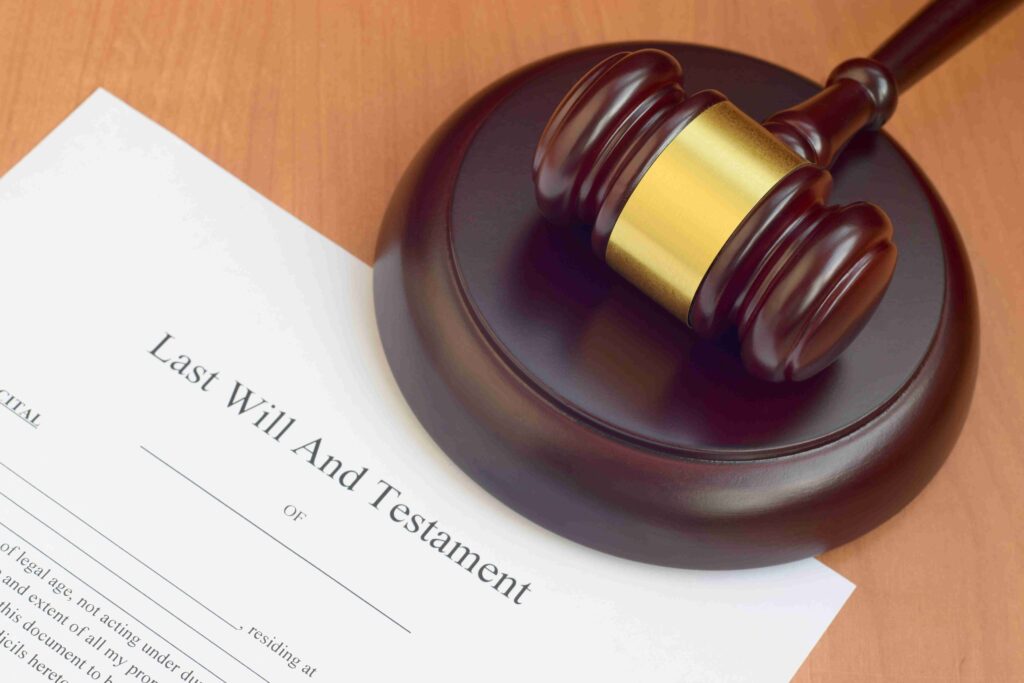Do I Need A Will If I Have Beneficiaries? (Yes – Explained)
A lot of people assume that once they’ve filled out those beneficiary forms for their bank accounts or life insurance, they’re basically done with estate planning.
It feels clean and simple – your assets go directly to the people you’ve named, no court involved.
But here’s the thing: that’s only part of the story. Beneficiary designations are great, but they don’t cover everything. And without a will, there can still be gaps, confusion, or even family drama you didn’t expect.
In this post, we’ll explain why you need a will even if you have beneficiaries.
Do I Need A Will If I Have Beneficiaries?
Yes, it’s still a good idea to have a will even if you’ve already named beneficiaries.
Beneficiary designations are awesome for assets like life insurance policies, retirement accounts, and payable-on-death (POD) or transfer-on-death (TOD) accounts.
They let money pass directly to the people you’ve named without going through probate.
But here’s the catch: not everything you own can be passed through beneficiary designations.
Your house, personal belongings, vehicles, investments without beneficiaries, or that old watch you promised your nephew, doesn’t automatically transfer just because you have a few forms on file.
Also Read: Who Needs A Trust Instead Of A Will?
Without a will, anything not covered by those designations gets distributed under your state’s intestacy laws. Basically, the government decides who gets what, and that plan may not match your wishes.
A will steps in to handle everything that falls outside your beneficiary designations.

It lets you give clear instructions on what should happen with the rest of your estate. Plus, it lets you make decisions that designations simply can’t cover.
What A Will Can Do That Beneficiary Designations Can’t
A will can do a lot of things that beneficiary designations just can’t. Here are just some of them:
#1 Name Guardians For Minor Children
If you have kids, this is probably the most important reason to have a will.
Naming guardians gives you control over who will raise your children if you’re not around.
Without a will, that decision falls entirely to the court, and they might not pick the person you would’ve chosen. You know your kids best, and you know who shares your values, who they’re comfortable with, and who can give them the kind of life you’d want for them.
A will lets you make that choice clearly and legally, instead of leaving it up to chance or a messy court battle.
#2 Choose An Executor To Handle Your Estate
The executor is the person who steps in after you’re gone to take care of all the details.
They’re the ones who gather your assets, pay your bills, file necessary paperwork, and make sure everything ends up where it should.
If you don’t choose someone in your will, the court appoints someone for you, and that might not be who you’d trust to handle your financial affairs.
Picking someone reliable and organized gives you confidence that your estate will be handled well. It also makes things easier for your loved ones, since they’ll know exactly who’s in charge.
Also Read: How To Cash An Estate Check
#3 Cover Personal Property, Digital Assets, Or Sentimental Belongings
It’s easy to think estate planning is just about bank accounts and real estate, but the smaller, more personal items can be the ones that spark the biggest emotions.
Things like family heirlooms, jewelry, collections, artwork, or even that old guitar everyone fights over – these often don’t have beneficiary designations.
A will lets you spell out exactly who gets what, so there’s no confusion or arguments.
And then there are your digital assets.
Think about your online accounts, social media profiles, photos stored in the cloud, or even cryptocurrency. These can be tricky to access after someone passes.
A will lets you decide who manages or inherits them, which can save your family a lot of stress later on.
#4 Handle Contingent Or Conditional Gifts
Life doesn’t always go exactly as planned, so it’s smart to build in some “what if” scenarios.
A will lets you do that through contingent or conditional gifts.
For example, you can set up a plan where if your primary beneficiary can’t inherit (maybe they’ve passed away or declined the gift) someone else automatically steps in.
You can also add conditions, like leaving money to your niece only after she finishes college, or gifting a home to a sibling on the condition they keep it in the family.
These kinds of instructions simply can’t be added to a beneficiary form, but a will gives you the flexibility to make your intentions clear.

#5 Establish Trusts
Wills can be used to create different kinds of trusts too.
For example, you might want to set up a trust for minor children so they don’t inherit a large sum of money all at once.
You can structure it to release funds at certain ages or milestones. Or maybe you have a relative with special needs who requires ongoing care – you can establish a special needs trust to make sure their support continues.
Trusts can also help manage taxes, protect assets, and keep some details private. Beneficiary designations can’t do any of that.
Also Read: How Much Does It Cost For A Living Trust?
#6 Outline Instructions For Taxes Or Debts
After someone passes, their estate usually has to deal with taxes, final bills, and debts. This can get complicated fast.
A will lets you provide instructions on how these should be handled.
Maybe you want certain accounts used to pay off debts first, or you want to make sure specific assets stay intact and aren’t sold off to cover expenses.
Giving clear directions here can make the process a lot less stressful for your executor and beneficiaries. It also helps keep your estate organized so nothing important gets overlooked.
#7 Include Charitable Bequests
If there’s a cause or organization that means a lot to you, your will is the perfect place to leave a lasting impact.
You can leave an amount, a percentage of your estate, or even certain assets to a charity.
It’s a meaningful way to support something you care about, and it ensures your gift actually gets to the right place. Plus, charitable bequests can sometimes come with tax benefits for your estate, which is a nice bonus.
Including these instructions in your will makes your intentions official and gives your legacy an extra layer of purpose.
When You Might Not Need A Will
For a few people, skipping a will might actually make sense.
This usually applies to very simple situations, like someone with no dependents, no real property, and assets that are all covered by beneficiary designations or joint ownership.
For example, if you have one checking account with a payable-on-death designation and nothing else, you might not technically need a will.
But even in these cases, having a will can still make things smoother.
It can handle unexpected situations, like receiving assets after your death, or give backup instructions if a beneficiary can’t inherit.
Bottom Line
Beneficiary designations are not a replacement for a will.
A will takes care of the rest including your property, personal wishes, guardianships, debts, and anything else that doesn’t fit neatly on a form.
Having both gives you a complete, well-rounded estate plan. It makes sure everything you own goes exactly where you want it to go, with as little stress as possible for your loved ones.
So yes, even if you’ve filled out all your beneficiary forms, you should still have a will.
It’s one of those things that might feel like a hassle now but saves everyone a ton of time and headache later. Plus, it gives you peace of mind knowing you’ve truly covered all your bases.

